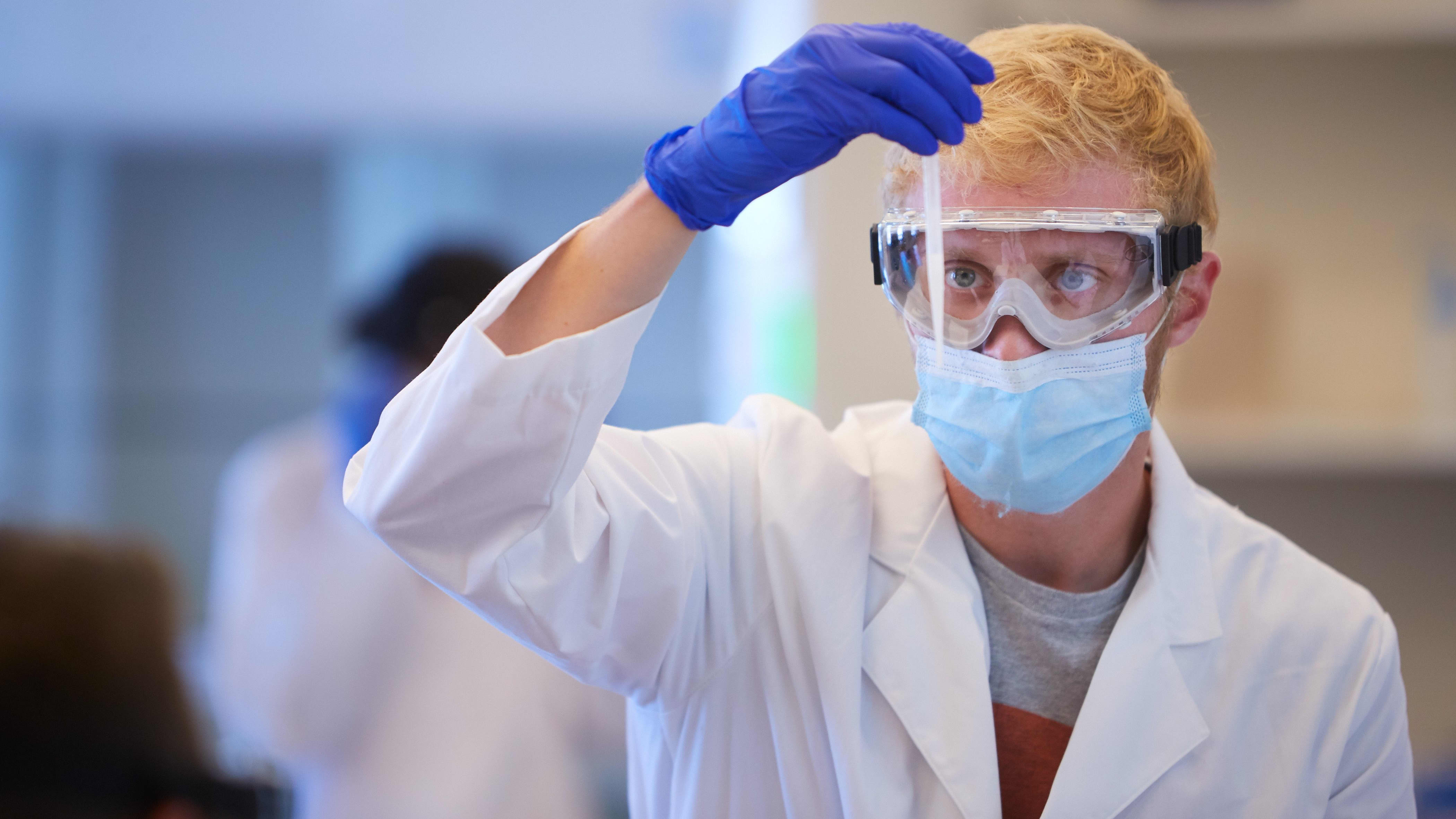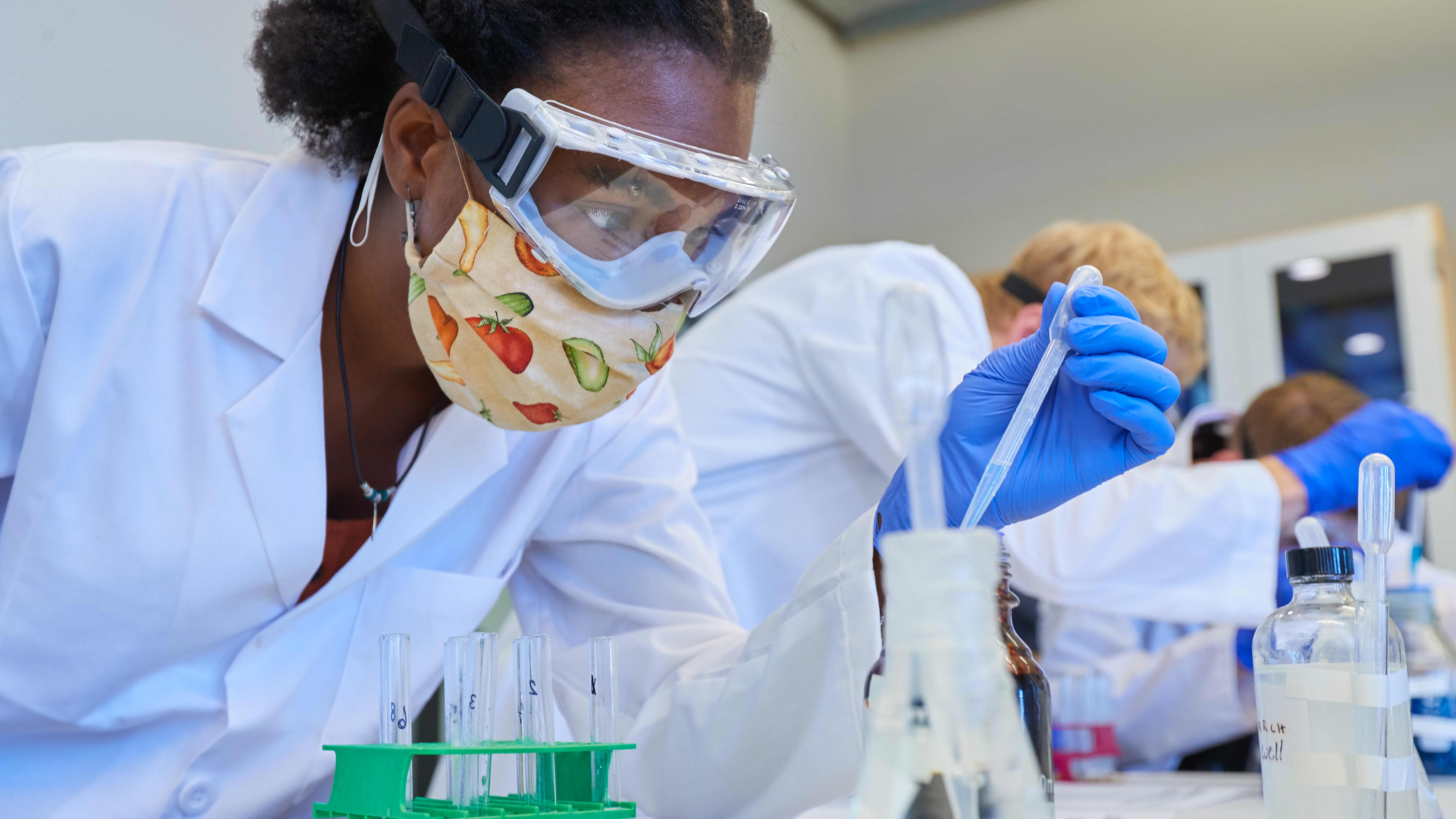College of Natural Sciences Research Opportunities
Whether you need research science sources for a project, hands-on labs and workshops, or a chance to explore natural science research, the College of Natural Sciences at Grand Canyon University is here for you. GCU is dedicated to enhancing academic pursuits and excellence by bridging classroom learning with practical challenges, issues and innovations.
One of the things that makes GCU so unique is the Research and Design Program, which was created with the primary goal of providing our students with key experiences necessary for graduate school programs of all kinds. The fact that the program allows our faculty to do something they love — that benefits society — that’s just icing on the cake!

The Research and Design Program (RDP) at GCU is designed to provide an opportunity for students to engage directly in faculty-mentored projects that offer hands-on experiences in a wide variety of scientific fields. Motivated students can also potentially seek a mentor to oversee projects of the student’s own design.
Further, students have an opportunity to join the RDP at any point in their education — no waiting for junior or senior year to become eligible. Early entry may increase the odds of you potentially earning placement on a scientific poster, presentation or publication. When you participate in RDPs and present your work at regional and national conferences, limited funding for travel may be available. Below are a few RDPs available to students.
The emergence of drug-resistant microorganisms has posed immense public health problems, causing deaths worldwide in part due to the mutagenic nature of the bacterial genome.1 Desert plants synthesize a variety of secondary metabolites to survive adverse conditions of the arid zone. Taking advantage of this diversity, this lab encompasses projects that cover field work, antimicrobial studies and advanced chemistry, providing a varied and enriching set of experiences for students to engage with.
The Canyon Neuroscience Group investigates both clinical and basic science questions relating to the function of the brain and nervous system. Our long-term focus is to address important neurological questions using different approaches, from human clinical studies to cell and molecular studies using tissue culture models.
Conventional science can be too rigid to solve some of the world’s most important problems such as access to clean water and maintaining a safe, healthy and sustainable environment. The overarching goal of this group is to find solutions to environmental problems through cross-disciplinary natural science research projects. Projects span ecology and environmental science field work to advanced chemistry and sensors.
The Forensic Science Research Lab is designed to conduct research and generate products that can aid forensic scientists in their ability to perform their work quicker and with increased scientific accuracy. This research lab utilizes multiple projects that can help the group to complete this mission while giving you the opportunity to gain practical hands-on experience using various forensic techniques.
The Performance Optimization, Wellness and Exercise Research (POWER) Lab is designed to contribute to research in the areas of health, nutrition, kinesiology, biomechanical analysis, sports performance and cognitive strength. Projects can help you gain research experience while utilizing a variety of research-grade testing devices.
The Microbial Biotechnology Division is continuing research on isolation, characterization and genetic manipulation of cyanobacterial species, and exploring their ability to produce various compounds, including biofuels. In this program, you may get to work on several projects that apply methods and techniques of biotechnology, molecular biology, genetics, microbiology and biochemistry.
Students in this lab will have the opportunity to utilize advanced equipment extensively. You can gain wet lab experience and may be able to utilize advanced methodology including FTIR, NMR, mass spectrometry, X-Ray crystallography and SEM.
To review full RDP descriptions and inquire about research science programs, visit the Research and Design Program page at GCU.
I was able to get really involved in the program and did a lot of research, so by the time I went into my anatomy classes I already had so much experience. I’m so thankful for that.

1 Interagency Coordination Group on Antimicrobial Resistance (IACG) (2019 April). No Time To Wait: Securing the Future From Drug-Resistant Infections. Retrieved on August 15, 2023.
